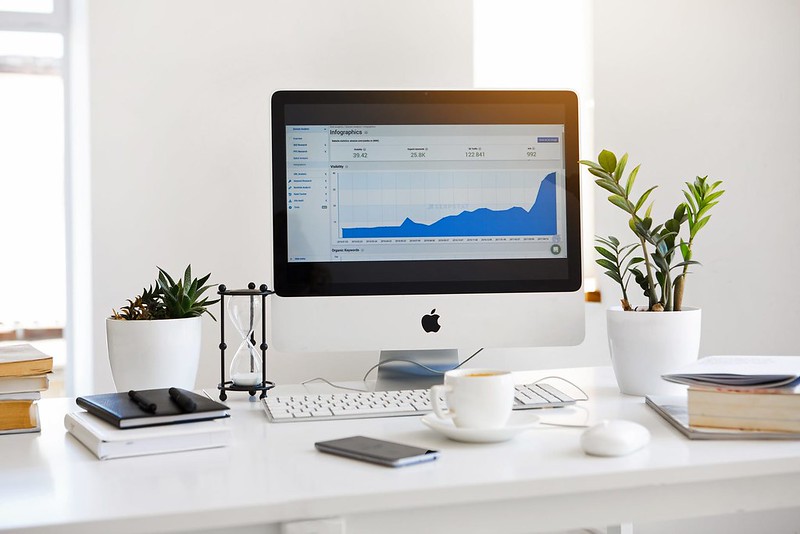Many of my friends envy me as a freelancer. My neighbors, on the other hand, wonder how come I don’t leave the house every morning like other Dads do yet still afford to drive our car anytime we want. You can read their minds asking themselves, ‘how in the world is he getting the money to gas up his SUV when he’s a bum?’
In a way, a freelancer’s daily routine is a reason to be jealous of. Imagine a life that’s alarm clock-free, no rush hour commute, and short pants and tees instead of a business attire. You take control of days answering to no one but your own impulses, interrupted only by siestas, or, when the occasion calls for it, playtime with your kids.
This must be the reason why many Filipinos are choosing to get outside of the 9-to-5 route and become entrepreneurs. At this particular time, there are already over a million registered small-to-medium enterprises (SMEs), freelancers, and self-employed professionals in the Philippines, making up 99% of the total business establishments operating in the Philippines.
According to the Philippine Statistics Authority (PSA), Annual Labor & Employment Estimates for 2017, there are approximately 11.2 million freelancers which make up 27.8 % of the total employed in 2017.
On the other hand, based on the 2016 List of Establishments of PSA, there are a total of 915,726 business enterprises operating in the Philippines, with MSMEs accounting for 99.57% of the total establishments.
Meanwhile, a BIR Report shows that there were over 2.5 million sole proprietors, 1.4 million freelancers, and about 429 thousand licensed professionals in 2016.
But then there’s one little concern among freelancers and self-employed Filipinos: the taxes!
Unlike full-time employees who are lucky to have their accounting departments take care of their BIR forms on a yearly basis, freelancers like us have to do our own taxes. And, it’s not easy.
If you’re a new freelancer, one of your greatest challenges as your own boss would be reporting to the Bureau of Internal Revenue or the BIR.
As an accountant myself, I understand how crucial taxation is for every entrepreneur.

Which Tax Classification Do Freelancers Belong To?
In the Philippines, self-employed individuals such as freelancers can register as a single proprietor or entrepreneur (other than marginal income earners or those earning less than Php 100,000 annual gross revenues), or as professionals.
Professionals, classified as self-employed, can be an individual or a group, practicing his/her or their profession, with or without license under a regulatory board or body. These do not include those who are earning purely from compensation income such as full-time employees.
Professionals with license under a regulatory board or certification body include engineers, doctors, lawyers, CPA’s, dentists, architects, agriculturists, nurses, and the like. But while freelancers such as bloggers, graphic artists, content writers, video editors, or photographers, or other people who provide customized services may not have licenses under a regulatory body, they are still considered as professionals by the BIR.
Be Aware of Your Tax Responsibilities and Compliance with the BIR
Upon registration of your business with the Bureau of Internal Revenue (BIR), you should receive a Certificate of Registration (COR) which is also the BIR Form 2303. The certificate shows all the taxes that you are required to file and pay.
Always be reminded of the BIR forms that you need to use for every tax type and the corresponding deadlines so you will not have to worry about penalties and surcharges:
As a freelancer or sole proprietor, you may need to check if you are required to file these BIR forms:
- Quarterly Income Tax (BIR Form 1701Q)
- Quarterly Value Added Tax (BIR Form 2550Q)
- Quarterly Percentage Tax (BIR Form 2551Q)
- Annual Income Tax (BIR Form 1701)
- Annual Registration Fee (BIR Form 0605)
For the complete list of required BIR Forms and to know what you need to accomplish and file on a monthly, quarterly, and annual bases, you may visit the Bureau of Internal Revenue (BIR)’s website here.
There’s Even An Easier and More Convenient Way To File and Pay Your Taxes
But filing taxes need not be taxing especially if you have very limited time to visit the nearest BIR RDO or Regional District Office.
A Filipino startup called TAXUMO has developed an easy-to-use tax filing and payment web app for freelancers, small business owners, and self-employed professionals in the Philippines.
TAXUMO’s web app lets you auto-calculate tax dues, auto-fill tax forms, and pay tax dues online without needing to fill out complicated BIR forms and sneak some time to go to the BIR office.
Stop worrying about taxes and start focusing on your passions!
Don’t miss out on the next tax deadline! Be done with percentage tax (BIR Form 2551Q) and income tax filing (BIR Form 1701Q) ONLINE in MINUTES.
Check it out for yourself. Sign up for a FREE account today. (Use Rock2RichesPH as your code when you sign up)
**This is a sponsored post.
—-
Subscribe to RockToRiches|BurnGutierrez.Com and learn about accounting and taxation for your business.
Rock your way to abundance!
#moneyliferocknroll
—
If you want me to coach you in improving your finances, type your name and email below and click the Subscribe button:


